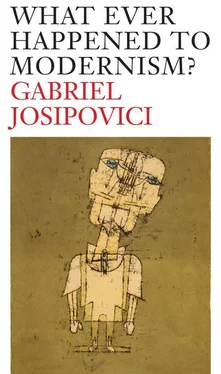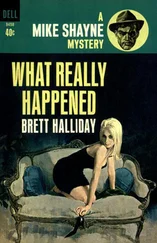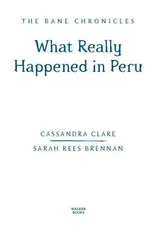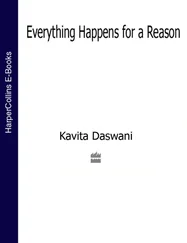In the end, though, this is a personal book, an attempt, fifty years on, to clarify the unease I felt in those early days in Oxford, which has only grown in the intervening years. I hope, however, that it says something not just about myself but about our world, about artists, and about art.
Lewes, 1 October 2009
MY WHOLE BODY PUTS ME ON MY GUARD AGAINST EACH WORD
In 1864 Mallarmé, aged twenty-three, wrote to his friend Henri Cazalis: ‘I feel I'm collapsing in on myself day by day, each day discouragement overwhelms me, and the lethargy is killing me. When I emerge from this I'll be stupefied, nullified (…
Chaque jour le découragement me domine, je meurs de torpeur. Je'sortirai de là abruti, annulé
).’ Shortly after this Mallarmé began work on a verse tragedy,
Hérodiade
, but was soon struck down by another bout of poetic impotence:
On top of that I am disgusted by my self; I step back from the mirror, seeing my face worn out and without any life in it, and cry when I feel myself to be empty and cannot put pen to the implacably white paper. To be an old man and finished at twenty-three, when all those we love live in the midst of light and flowers, at the age of the creation of masterpieces! [… Etre un vieillard, fini, à vingt-trois ans, alors que tous ceux qu'on aime vivent dans la lumière et les fleurs, à l'âge des chefs-d'oeuvre! ]
Nearly forty years later, in 1901, the young Austrian poet, Hugo von Hofmannsthal, wrote a strange little work in which he tried to explain to himself and the world why he had found himself unable to go on with his brilliant career as a poet. The work takes the form of a letter purportedly written by Lord Chandos, a young country gentleman of the Elizabethan period, to his older friend, the statesman and philosopher Francis Bacon. ‘My condition is this’, he writes:
I have quite lost the faculty to think or speak on any subject in a coherent fashion. To begin with, it gradually became impossible for me to converse on any higher or general subject, and to use those words which all men use constantly and unhesitatingly. I felt inexplicably loath even to say ‘Mind’ or ‘Soul’ or ‘Body’.
Gradually, however, the whole of language became infected. He seemed no longer able to grasp things ‘through the simplifying regard of habit’, as other people seemed to do:
Everything fell into pieces in front of me, the pieces into more pieces, and nothing could be contained in a single concept any more. Individual words swam around me; they melted into eyes, which stared at me, and which I had to stare back at; they are like whirlpools, it gives me vertigo to look down at them, they turn without cease, and transport you into nothingness.
He tries to rescue himself from this plight by turning to the Ancients, to Seneca and Cicero in particular:
I hoped to cure myself with that harmony of limited and orderly concepts. But I was unable to reach them. Their concepts I could well understand: rising before me like majestic fountains with golden balls … I could float around them and see how they played together; but they were only concerned with each other, and the deepest, most individual part of my thought was excluded from their dance. In their company, I was overcome by a feeling of terrible solitude; I felt like someone who had been locked into a garden full of eyeless statues.
Since then, his ‘existence has been one that, I fear, you will hardly be able to comprehend, so devoid of mind and thought is it’. Outwardly he seems no different from those around him, but inwardly he is a changed man. Yet, he explains to the chancellor, this is an existence not entirely devoid of good moments, though these take a form which it is impossible to explain to another:
For it is something that has never been named and that it is probably impossible to name, which manifests itself to me at such moments, taking some object from my everyday surroundings, and filling it like a vessel with an overflowing torrent of higher life … A watering-can, a harrow left abandoned in a field, a dog in the sun, a poor churchyard, a cripple, a small farmhouse, any one of these can become a vessel for my revelation.
Apart from these strange occurrences, though, ‘which, by the way,’ he adds, ‘I can hardly say whether they should be called physical or spiritual,’ ‘I lead a life of almost unbelievable emptiness’, rendered all the more painful by the knowledge
that in the next year, and the year hereafter, and in all the years of my life I shall write no English and no Latin book: and this for a reason whose — to me — distressing strangeness I leave it to your boundless intellectual superiority to place with an undazzled vision there where it belongs in the array of physical manifestations that are harmoniously spread out before you: namely, because the language in which it might perhaps have been given to me not only to write, but also to think, is neither Latin nor English, nor Italian nor Spanish, but a language of which I do not know even one word, a language in which dumb things speak to me, and in which I may once, in my grave, have to account for myself before an unknown judge.
Ten years after the writing of ‘The Letter of Lord Chandos’, in another major city of the soon-to-disappear Austro-Hungarian Empire, Prague, we find the twenty-seven-year-old Franz Kafka confiding to his diary an experience not dissimilar to that of Hofmannsthal's Elizabethan gentleman. While in his office, dictating a report,
towards the end, where a climax was intended, I got stuck and could do nothing but look at Fraülein K, the typist, who, in her usual way, became especially lively, moved her chair about, coughed, tapped on the table … Finally I have the word ‘stigmatize’ and the appropriate sentence, but still hold it all in my mouth with disgust and a sense of shame as though it were raw meat, cut out of me [… Endlich habe ich das Wort ‘brandmarken’ und den dazu gehörigen Satz, halte aber noch im Mund mit einem Ekel and Schamgefühl, wie wenn es rohes Fleisch, aus mir geschnittenes Fleisch wäre ].
A year earlier he had written to his closest friend, Max Brod, with whom he had recently undertaken a trip to Paris:
I can't write. I haven't written a single line that I can accept, instead I have crossed out all I have written — there wasn't much — since my return from Paris. My whole body puts me on my guard against each word; each word, even before letting itself be put down, has to look round on every side; the phrases positively fall apart in my hands, I see what they are like inside and then I have to stop quickly.
Twelve years later, with most of what we consider to be his greatest work (the defining work, Auden believed, of the twentieth century) behind him, Kafka sends another letter to Brod, which makes it clear that those early remarks are not the usual grumbles of a budding artist frustrated at not being able to find his voice, but something more unusual and much more troubling:
During last night's insomnia, as these thoughts came and went between my aching temples, I realised once again, what I had almost forgotten in this recent period of relative calm, that I tread a terribly tenuous, indeed almost non-existent soil spread over a pit full of shadows, whence the powers of darkness emerge at will to destroy my life … Literature helps me to live, but wouldn't it be truer to say that it furthers this sort of life? Which of course doesn't imply that my life is any better when I don't write. On the contrary, then it's much worse, quite unbearable, and with no possible remedy other than madness.
Some forty years on again and we find Samuel Beckett, an Irishman long resident in Paris, publishing, in French, a series of dialogues on painters and painting with the art critic and son-in-law of Matisse, Georges Duthuit. In the first of these, on Tal-Coat, the Dutch painter so admired by Wallace Stevens as well as himself, he says: ‘I speak of an art … weary of puny exploits, weary of pretending to be able, of being able, of doing a little better the same old thing, of going a little further along a dreary road.’ What would you put in its place? asks a puzzled Duthuit. ‘The expression that there is nothing to express,’ responds Beckett, ‘nothing with which to express, nothing from which to express, no power to express, no desire to express, together with the obligation to express.’
Читать дальше












